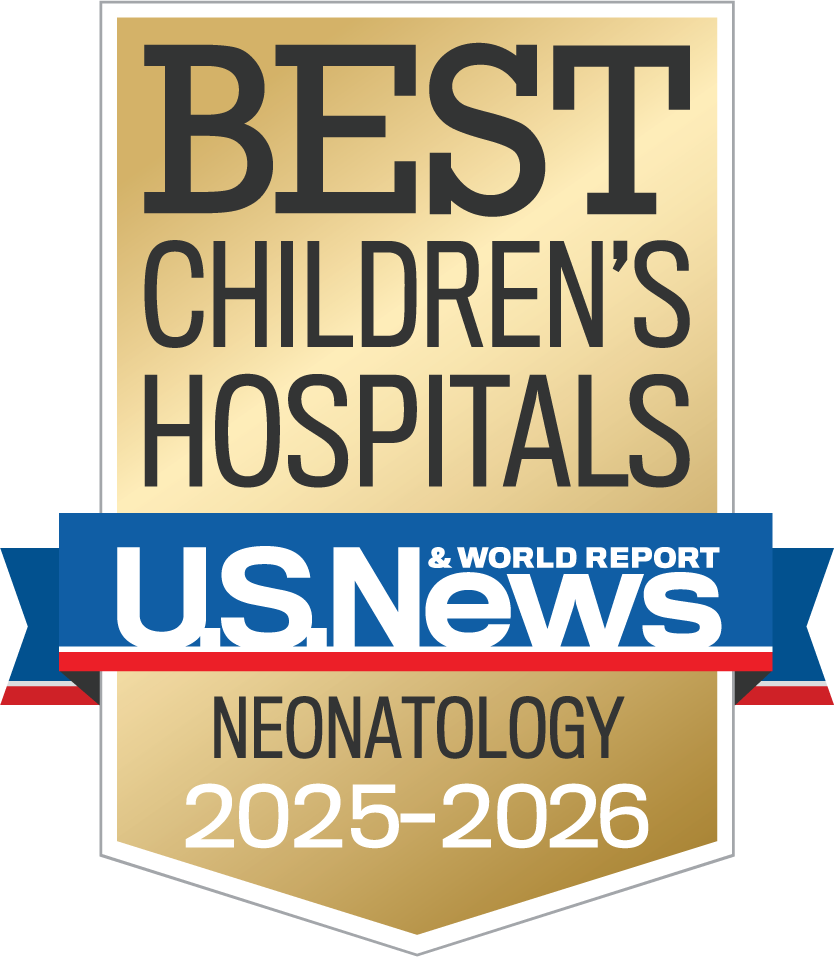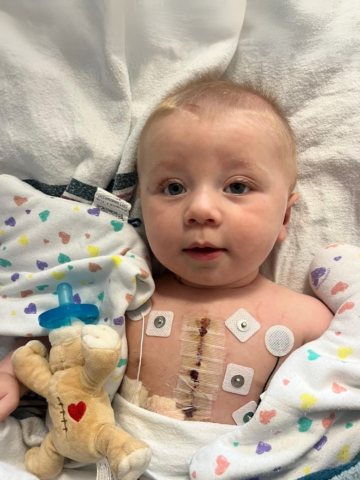CHOC Small Baby Unit (SBU) is improving quality and outcomes in extremely low birth weight (ELBW) infants (babies born at 28 weeks gestation or less and weighing less than 1,000 grams), according to results of an article CHOC physicians and staff published in a recent issue of Pediatrics.
“In recent years, the survival rates for ELBW infants have improved with the latest advances in neonatal intensive care, but many are still released from the hospital with significant challenges, including neurodevelopmental delays and/or chronic medical problems,” said Mindy Morris, DNP, the SBU program coordinator and the article’s co-author. “Our goal was to improve these outcomes by utilizing a dedicated team with expertise in the care of these patients.”
The objective of the CHOC neonatology team was to care for ELBW infants in a single location physically separated from the main Neonatal Intensive Care Unit (NICU). This space became the 12-bed SBU, which consisted of four individual patient rooms, two of which are surgical suites, and three four-bed pods. Different from a traditional NICU, this smaller unit allows for a darker, quieter environment that encourages developmentally supportive care. The goal is to create an environment that respects and supports the physiologic needs of the baby to grow and develop after being born so prematurely. Grouping this population also provides parents an opportunity to form strong bonds with other families sharing similar experiences.
Outcomes from the two years before and four years after the SBU’s opening in March 2010 include:
• Reduction in chronic lung disease from 47.5 percent to 35.4 percent. A common condition for premature babies, chronic lung disease can have long-lasting ramifications including re-hospitalization and poor neurodevelopment.
• Rate of hospital-acquired infection decreased from 39.3 percent to 19.4 percent.
• Infants being discharged with growth restriction (combined weight and head circumference, < 10th percentile) decreased from 62.3 percent to 37.3 percent. (These factors are linked to cognitive and physical disabilities.)
• Reduction in laboratory tests (from 224 to 82) and X-rays (from 45 to 22).
Additionally, there was a reduction in illness and complications among infants after leaving the SBU.
Moving forward, the SBU’s goal is to continue to improve patient outcomes, as well as family and staff satisfaction, while also becoming a destination for the care of extremely preterm infants.
Get more expert health advice delivered to your inbox monthly by subscribing to the KidsHealth newsletter here.

Learn more about CHOC’s Neonatology Services
CHOC Hospital was named one of the nation’s best children’s hospitals by U.S. News & World Report in its 2025-26 Best Children’s Hospitals rankings and ranked in the neonatology specialty.





